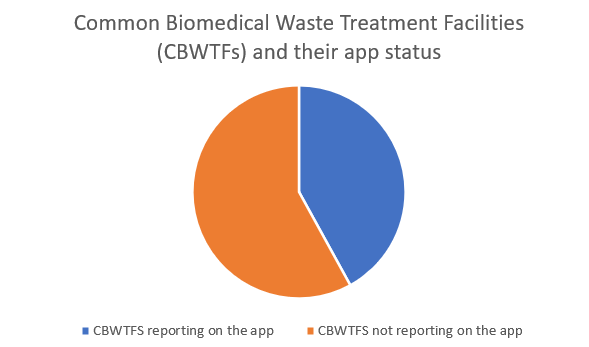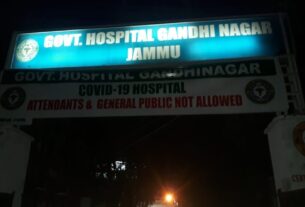Monitoring of biomedical waste disposal did not kick off well in Karnataka owing to low usage literacy and technical issues.
Karnataka has partially implemented mandatory guidelines to use the Covid-19 Biomedical Waste Management application (COVID19BWM) for tracking disposal of biomedical waste produced by healthcare facilities.
Technical issues with the app and lack of awareness amongst collectors are major issues, said authorities and experts.
“We have been using the app since last year, and have been facing a lot of technical issues while updating the data on it,” said M. Rao, an official at Anu Autoclave and Incineration Services, a Common Biomedical Waste Treatment Facility (CBWTF).
The National Green Tribunal (NGT) had directed the Central Pollution Control Board (CPCB) to make use of an application to monitor the collection and disposal of biomedical waste. CBWTFs that collect and dispose of the waste are supposed to update this data. However, according to NGT’s report, Karnataka has not implemented the app guideline fully.
The app to monitor the biomedical waste would have been beneficial if the CBWTFs would have used it, said an official from Karnataka State Pollution Control Board (KSPCB). The facilities that have not complied with the rule have violated the guidelines for handling biomedical waste and have been called for personal hearings, he further said.
Moreover, there are less than the required number of employees in CPCB and KSPCB to monitor the implementation and violation of guidelines, he added.
However, Mahesh GP, managing partner at Sushanth Environment Technologies, another CBWTF, said that they have been using the app efficiently and have been updating the data regularly.
There was an increase in biomedical waste due to the Covid-19 pandemic. According to the Centre for Science and Environment’s analysis, India’s biomedical waste generation increased by 46 percent in April to May 2021. However, CPCB’s report states that 15 CBWTFs out of 26 in Karnataka are not reporting the data on the app.

App specifications
The app is installed by all healthcare facilities and CBWTFs that go for door-to-door collection of biomedical waste, said Manoj Kumar, app developer for COVID19BWM at Knowledge Lens, an environment service that developed the app with CPCB. Hospitals are the primary source of data as they enter the weight of the color-coded bags containing various types of waste including syringes, masks, hospital gowns, PPE kits among others.
“Hospitals are allotted with CBWTFs who verify the data entered by re-weighing the bags and making required changes. The app contains Global Positioning System (GPS) for live tracking of the trucks that carry the waste to the respective CBWTF center for final disposal,” Kumar further said.
The app is then updated with information about the waste disposal either through incineration or segregation. Data updated by healthcare facilities including isolation wards, testing labs, covid centers, hospitals and respective CBWTFs is cross checked before approval by both KSPCB and CPCB, he further said. However, to tackle app glitches including poor connectivity, offline data submission has been introduced, he added.
Experts and officials however doubt the efficiency of the app in monitoring accurate information. The use of the application depends on, if the information updated on the app is correct, said the official from KSPCB. Manual data entry can result in incorrect weight values of the bags updated by the hospitals, he added.
Literacy to use the app can be a big issue in realizing the potential of this guideline, said Prasad Date, executive officer at CBWTF located in Thane, Maharashtra. Ideally, the app can be used to update the exact timing and weight of the bags containing biomedical waste along with the time of their pick-ups and disposal. But its implementation has been just 50 percent because operators do not know much about the usage of these applications, he further said.
“Another problem that CBWTFs face includes no particular method for disposing of certain kinds of wastes. This is a grey area wherein the authorities and the government do not have answers. They are not fit for incineration or sterilization at times owing to pollution concerns,” Date said.
Such problems could be solved if CPCB provides proper training for the working of this application, he added.




